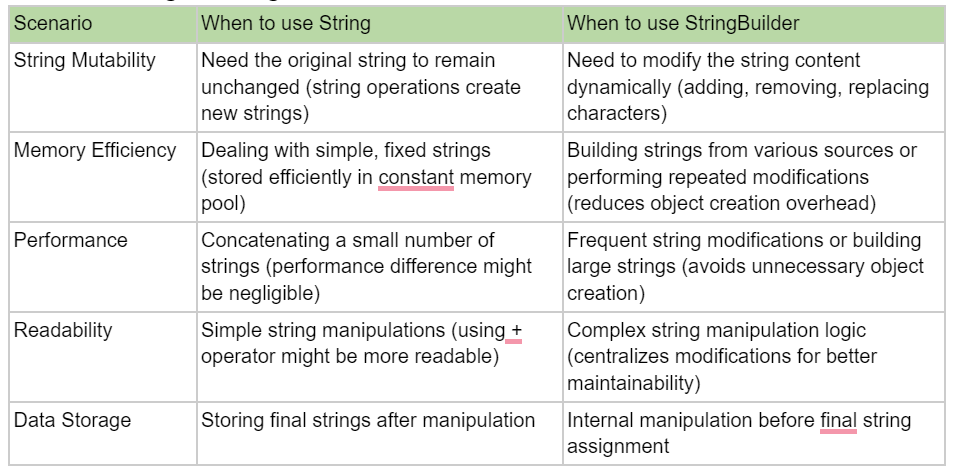String vs StringBuilder in C#
String:
A string is an object of type String whose value is text. Internally, the text is stored as a sequential read-only collection of Char objects.
In C#, the string keyword is an alias for String; therefore, String and string are equivalent. It's recommended to use the provided alias string as it works even without using System;. The String class provides many methods for safely creating, manipulating, and comparing strings.string text = "This is a string.";
Immutability: Strings in C# are immutable. Once a string is created, it cannot be changed. Any operation that appears to modify a string (like concatenation, replacement, etc.) actually creates a new string object and leaves the original string unchanged.
Memory Allocation: Because strings are immutable, every time you modify a string, a new object is created in memory. When you create or update a string, memory is allocated on the heap to store its characters. This can lead to significant overhead if you're performing many modifications, as each new string creation involves allocating new memory and copying the contents of the strings and this memory location remains fixed for the lifetime of the string object.
Garbage Collection: Since strings are immutable and each modification creates a new object, there can be a lot of temporary string objects that need to be garbage collected. This can increase the load on the garbage collector, especially with frequent string manipulations.
StringBuilder:
In C#, StringBuilder is a class that provides efficient methods for manipulating character sequences. Unlike strings, which are immutable (unchangeable) in C#, StringBuilder allows you to modify its content dynamically. This makes it particularly useful for building strings from various sources or performing repeated modifications on a string.
StringBuilder sb = new StringBuilder("Hello World!");
Mutability: StringBuilder is mutable, meaning it allows modification of the string it contains without creating new objects. This makes StringBuilder more efficient for scenarios involving frequent or extensive string manipulations, such as concatenation in loops.
Memory Allocation: StringBuilder is a mutable object designed for efficient string manipulation. When you create a StringBuilder object, it allocates an initial amount of memory on the heap to hold an internal character array. This memory allocation can be fixed or configurable based on the constructor used.
Garbage Collection: Since StringBuilder reduces the number of allocations, it also reduces the number of temporary objects, thereby lessening the load on the garbage collector.
Key Difference
Use Case String Vs StringBuilder





